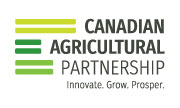Several Options available, but Exercise Caution
When it comes to disposal of farm wastes, some of producers’ most common questions involve how to properly dispose of used motor oil. The good news is that there are several options available. Some of these include disposal in a recycling centre, reusing it as lubricant for equipment, and on-farm storage away from livestock feed areas.
However, there are several factors to consider when managing used motor oil. Some municipalities may have by-laws restricting the use of used motor oil as dust control, for example. Also, used motor oil may not be appropriate as a lubricant in all cases. Here are some general tips.
Disposal
Because used motor oil is considered a hazardous product, it should not be disposed of in community landfills. Instead, it should be delivered to specific recycling centres set up to handle the product. The Alberta Used Oil Management Association offers a province-wide list of these facilities on its Web site at http://usedoilrecyclingab.com
There are other options as well. Some companies will pick up larger quantities of oil. Also, some 4-H clubs in Alberta collect used oil and filters, while some community organizations organize used oil drop-offs. For information on 4-H clubs with active farm waste recycling programs, contact the 4-H Foundation of Alberta at (780) 682-2153 or e-mail [email protected].
Reuse as lubricant
Used motor oil can be used as a lubricant in certain cases. However, this option should be approached with caution as it can be harmful to certain machinery. One example of a case in which it would be appropriate is to use it would be on slow moving chains such as those found on manure spreaders and gate hinges.
Burn
Burning used motor oil is another option. However, it should only be done in a furnace specifically built for that purpose.
Dust control on driveways
Although generally not recommended as a front line solution, spreading used motor oil on driveways has become a common way to recycle the product. However, one should use care when employing this method as it can lead to contamination of water supplies if not done properly.
The first thing a producer should do is obtain permission from the local municipality. Alberta Environment grants permission to apply oil to roads through individual municipalities. However, some municipalities allow the practice while others do not.
Producers using this method should also consult Alberta Environment’s Guidelines for the Application of Used Oil to Road Surfaces. This set of guidelines allows used oil to be applied under the following conditions:
- Certain specifications for maximum content of arsenic, cadmium, lead and other contents are met.
- The application of the oil is more than 25 metres from surface water bodies (including sloughs) or a domestic water supply.
- The application rate does not result in visible runoff of oil beyond the travelled portion of the road.
- Permission has been obtained from the land owner or person responsible for the road.
- Application is limited to twice a year.
Available Assistance
Information and assistance on the proper management of farm wastes, as well as a number of other on-farm environmental practices, is available through a strong network of EFP Technicians throughout the province.
This article may be reprinted with the credit: Alberta Environmental Farm Plan
For more how-to fact sheets or other information, visit www.albertaEFP.com.
 Initiative
Initiative



